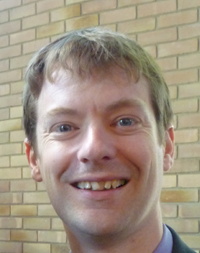Dr Phil Hasnip

Welcome to my home page here at the Physics Department, University of York. Here you will find information relating to my research, as well as resources for my various teaching courses.
I am an EPSRC Research Software Engineering Fellow, and my work is mostly concerned with the computer program CASTEP, which uses quantum mechanics to compute the properties of a vast array of materials and chemicals, from catalytic converters to proteins. I work closely with the UK Car-Parrinello Consortium to develop CASTEP to support UK scientists.
CASTEP is based on Density Functional Theory (DFT), and can predict the properties and behaviour of materials and molecules. I am a member of the CASTEP Development Group (CDG), and my research time is generally split between developing the simulation methodology, and using CASTEP to study a wide range of nanomaterials. For more details, please see my research pages.
As well as doing research, I am the Graduate Skills Coordinator for Physics, and I have various teaching responsibilities including the third year course "Advanced Computational Laboratory", which covers the application of computer programming to problems in physics, and the graduate course "First Principles Materials Modelling". I also teach several short graduate training courses. More information may be found here.
What is Research Software Engineering?
In a nutshell, research software engineering (RSE) is the art and science of creating good research software; "good" here means reliable, reproducible and sustainable. The term was coined to recognise a large (and growing) number of researchers who develop software to tackle research problems. Many of these `research software engineers' find themselves spending more time creating and maintaining the software than doing research with it, and it is common for the majority of the actual science to be done by other researchers using the software.
Of course most of the people developing research software are still PhD students and post-doctoral researchers, rather than dedicated research software engineers. In Physics we support this software development in a variety of ways, from undergraduate training and Graduate Professional Development, to Coding Clubs. You can find out more about RSE at York here.
Computational illustrations
I've just started to learn javascript, so you'll find a few illustrations and live demonstrations scattered amongst these pages. This is my first foray into web programming, so I expect there will be some issues; feel free to let me know of any problems displaying them.
Materials Studio, Licence Servers and Firewalls
Over the last few years I have spent a ridiculously large amount of time trying to get various laptops to check out a licence for Materials Studio across a University firewall. I've written some notes on how to do this here.
Contacting me
Feel free to email me; I'm pjh503 at York.